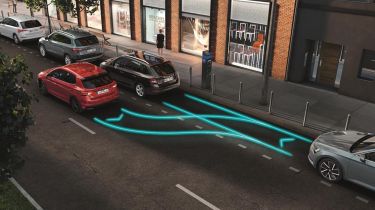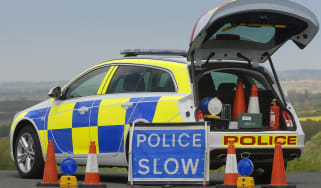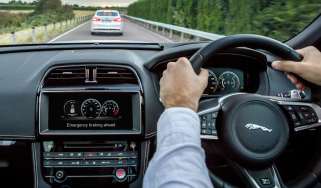How to parallel park
Even seasoned drivers can struggle with parallel parking. Read on for our guide and tips on how to parallel park successfully and safely in your car

Whether you’re a learner driver or a full licence holder with many miles under your belt, a parallel-parking manoeuvre isn’t always straightforward. However, it’s an important skill to have, because you will likely need to do it a lot, especially if you only have access to on-street parking.
It’s a key skill, so you will typically be taught how to do this when learning to drive, and your examiner may even ask you to demonstrate a parallel park on your driving test. The best way for novices and veterans alike to get their heads around parallel parking is by putting in lots of practice, but if you’re still struggling to get to grips with it, keep on reading for our tips on how to safely parallel park.
What is parallel parking?
 How to appeal a parking ticket
How to appeal a parking ticket
Parallel parking is just that – you park your car in a space that runs parallel to the road. And in the majority of cases you’ll be able to drive into a designated parking spot at the side of the road.
However, there’s a more specific definition of parallel parking when you’re learning to drive or doing your driving test. In this instance, a parallel park refers to you reversing your car into a relatively small space at the side of the road, between two other cars that are also parallel parked.
How to parallel park safely
When you find a spot in which you want to parallel park, turn on your indicator to give other road users a heads-up about your intention. Make sure you’ve also visually sized up the space before you commit to parking in it – you’ll ideally want at least two feet of clearance at both ends to ensure you have enough room to steer your car into and out of the space.
If the space is big enough for your car, start slowing your car down to a complete stop while keeping your indicator on; always be aware of what traffic around you is doing. Ideally, you will want to be alongside the car parked in front of the empty space, with at least one metre of side-to-side clearance between your car and the other vehicle.
Once you’ve stopped, make sure it’s safe and clear for you to reverse; there’s no way you can reverse parallel park if there’s another car close behind you. Make sure you also check your door mirrors and blind spots, to make sure there aren’t any obstacles or road users that aren’t in your immediate line of sight.
If it’s safe to proceed, engage reverse gear, look over your left shoulder to see out of the rear window and start to reverse. Once your car’s front wheels are roughly parallel with the rear end of the car you want to park behind, check your mirrors and blind spots again for hazards and be prepared to stop if there’s an obstacle in your way. If all is clear, give the steering wheel one full turn (left if the space is on your left, and right if it’s on your right) and slowly keep reversing.
While doing this, it’s important that you’re still aware of your surroundings, because your car will now be at a 45-degree angle to the pavement, and the front will still be sticking out into the road. Once your car is clear of the car ahead, you can start straightening your car out by turning the steering wheel on to full lock in the opposite direction while still reversing.
Using the nearside door mirror, align your car so it’s parallel with the kerb. Once it is, straighten out your car’s steering so both of your car’s front wheels are pointing straight ahead, as they would when you’re normally going down the road. Bring your car to a stop and, if the car is within its spot, apply the car’s handbrake (if you’re driving an automatic car, also put it in ‘Park’) and turn the car off.
Will I have to parallel park in my driving test?
There’s a decent chance you’ll be asked to parallel park when taking your driving test, because it’s one of the possible three main manoeuvres you’ll be asked to do (the other ones are bay parking, and pulling up and reversing for two car lengths on the right-hand side of the road). As a result, learning how to parallel park and getting in lots of practice means you’ll be well prepared if this is the task your examiner picks during the driving test.
If your examiner asks you to demonstrate a parallel-park manoeuvre, you will need to park in a spot on the left-hand side of the road. The size of the space you’ll be asked to park in will vary, depending on factors like how many parked cars there are, although the gap typically won’t be larger than two car lengths.
When you’re parallel parking in your driving test, don’t get flustered if things aren’t going 100% perfectly. Even though the examiner is assessing your parking skills, you shouldn’t be marked down for serious faults if you’re demonstrating strong hazard awareness and can park the car reasonably close to the curb.
However, if you demonstrate poor car control such as scuffing the kerb or having to reposition the car, you will almost certainly be marked down for a minor fault. These on their own won’t cause you to fail your test, but clock up enough minors when parallel parking (or throughout the rest of the test) and you’ll end up failing. You’ll also automatically fail your test for major faults such as mounting the kerb or not being aware of your surroundings.
First cars made simple...
Recommended

Beat the Easter weekend traffic: secrets of a stress-free car getaway

Speed awareness course: cost, who’s eligible, and how long does it take?

Driving in Germany: laws, tips and Autobahn speed limit
Most Popular

Suzuki’s new 10-year warranty is free – here’s how to get it
Tips & advice

Car dashboard warning lights: what does each symbol mean?

Electric car charging stations: public networks, charger types, apps and maps









